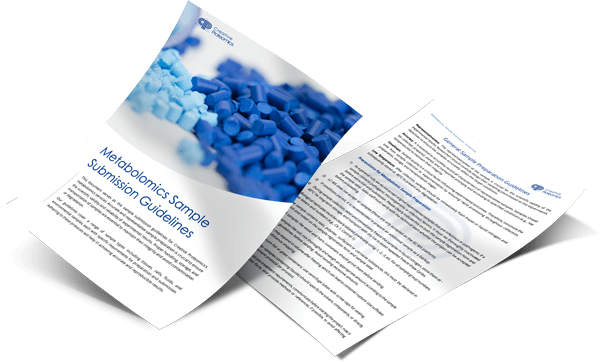
α-Linolenic Acid is abbreviated as ALA and is a a kind of omega-3 fatty acid found in seeds of chia, flaxseed, nuts and many common vegetable oils. α-Linolenic Acid is one of two essential fatty acids, which humans and other animals must ingest because the body requires them for good health but cannot synthesize them by themselves. In terms of its structure, α-Linolenic Acid consists with an 18-carbon chain and three cis double bonds. α-Linolenic Acid is an isomer of gamma-linolenic acid, which is a polyunsaturated omega-6 fatty acid and be found primarily in vegetable oils.
Scientists at Creative Proteomics utilize a highly quantitative method with high-performance liquid chromatography (HPLC) for the determination of α-Linolenic Acid levels in various samples, including Tissue, Plant and more. High-Performance Liquid Chromatography (HPLC) with UV detection is used for the determination of α-Linolenic Acid (203 nm) levels in a lot of biological samples. This Methodology provides accurate, reliable, and reproducible results of α-Linolenic Acid measurement, which enables us to analyze of α-Linolenic Acid levels in vitro and in vivo.
There are a number of studies have shown that α-Linolenic Acid has effect on an increased risk of prostate cancer and the risk was found to be irrespective of source of α-Linolenic Acid, such as meat, vegetable oil. However, a study done in 2006 suggested that there are no inevitable connection between the total α-Linolenic Acid intake and the overall risk of prostate cancer, in the following study, a meta-analysis shows that the results published in the earlier years are biased. So, the scientists concluded that the relationship between the intake of α-Linolenic Acid and the increased risk of prostate cancer is quite small.
The Russian-Polish botanist M. Tswett is generally recognized as the first person to establish the principles of chromatography. In a paper he presented in 1906, Tswett described how he filled a glass tube with chalk powder (CaCO3) and, by allowing an ether solution of chlorophyll to flow through the chalk, separated the chlorophyll into layers of different colors. He called this technique “chromatography”. Fundamentally, chromatography is a technique used to separate the components contained in a sample. High Performance Liquid Chromatography (HPLC) is a method able to separate non-volatile, thermally unstable, and polar components separate or in a mixture. HPLC is a type of chromatography that, because of its wide application range and quantitative accuracy, is regarded as an indispensable analytical technique, particularly in the field of organic chemistry. It is also widely used as a preparation technique for the isolation and purification of target components contained in mixtures.
α-Linolenic Acid Analysis Service at Creative Proteomics supports your research in α-Linolenic Acid Analysis. HPLC Based Analysis Service Platform enable us at Creative Proteomics offers you a state-of-the-art Analysis Service.
Sample Type
Various Sample Type
Method
High-Performance Liquid Chromatography (HPLC) with UV detection is used for the determination of α-Linolenic Acid (203 nm) levels in a lot of biological samples. This Methodology provides accurate, reliable, and reproducible results of α-Linolenic Acid measurement, which enables us to analyze of α-Linolenic Acid levels in vitro and in vivo.
Send us your samples, you will get all information that you need!





